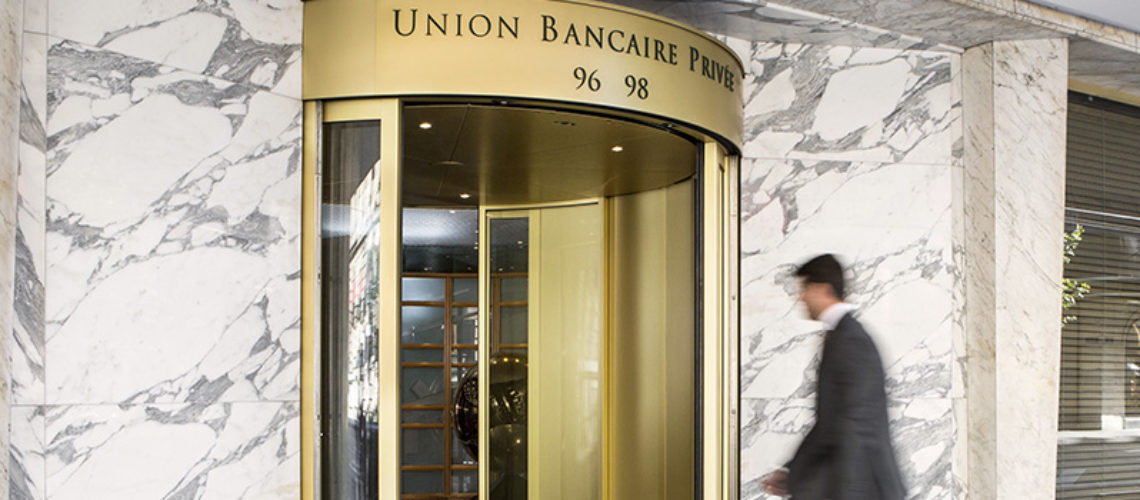Earlier this year Union Bancaire Privée, the private banking group, scooped the award for best pure-play boutique private bank at this publication’s Greater China programme. We managed to catch up with Eric Morin, CEO for Hong Kong and head of north Asia at the Geneva-based group, to ask him about its strategy and in particular, the firm’s recently-launched Family Offices Services arm.
WealthBriefingAsia: This year Union Bancaire Privée rolled out its FOSS Family Office Advisory in Asia following a solid set of financial results for 2019. Can you give me an overview of what the new family office service is? What is distinctive about it and why is it being launched in Asia?
Morin: Family offices services is an integrated offering that provides the client with an “on the way solution” from the time that the client has the idea to set up a family office until the time when he has the assets booked in an account with UBP. We consider this arrangement a partnership with the client. We accompany him/her in the process of setting up the family office. That requires a deep understanding of the family objectives and the family issues as well. Our job is to help the family overcome all of the difficulties, set up the right structure, in the right jurisdiction, with the right people, in the right format and then, eventually, to manage and advise on the assets of the family office.
So how potentially large is the family offices market in Asia? Are there particular jurisdictions in countries such as Singapore, Indonesia, Malaysia, Thailand, and the Philippines, for example, where you see a specific demand for family offices services?
The need, or the demand, for family office services comes principally from established markets. So we see more interest in Singapore and Hong Kong, which are more established. Second, the clients are the most sophisticated in those markets. Third, the higher the wealth generation in some countries, the stronger the interest in single family offices. I would like to underline China, which is already important now, but in the future will be an even more important wealth management centre requiring single family offices.
What sort of people are setting up family offices? Self-made entrepreneurs, some inheritors, others?
In this part of the world, the wealth mostly comes from entrepreneurs who are still active and very often self-made. Also the size of the family assets should be sufficient to justify the establishment of a single family office.
When people consider setting up a family office, what reasons do they give as to why they want to do so? Do you find that they understand what’s involved, in terms of running costs, HR, alignment of interests, ability to source deals?
We have to make clear to our clients that family offices involve operational costs: salaries, rental of offices, and more. So this is not for every client and that has to be understood by families with certain assets: financial assets or other assets that must be managed. So we have the ability to choose whether the solution of the family office is the right one based on the amount of assets held by the family. Otherwise, the main reason is to have more tailor-made management of the family’s affairs, not only the assets, but also the rest of the relationship between the family members that can help to address that as well, and to have a one-stop shop for managing those assets. So there is both a convenience reason and a customisation purpose which is sought by the family.
How should Asian family office founders learn from the experiences of family offices in Europe, the Middle East and North America?
What we have noticed is that the needs of wealthy people are more or less the same all over the world. There are not significantly different needs among wealthy individuals in the US, or Europeans or Asians.
Regarding philanthropy, however, we see that the ideas are more evolved and more developed in North America, in particular, and to some extent also in Europe because the wealth is probably older in those countries. The families have integrated philanthropy as one of their activities, so you see philanthropic activities in the family office as well. This angle has not yet reached the same magnitude in Asia. So that may be an area where Asians can learn from Americans.
How is the family office offering designed to fit in with the rest of what UBP offers, such as alternative investments?
What would be better than a family-owned bank to talk about the family office? I think we are ideally positioned to address those type of needs from the DNA of the bank. That is an insight that has been at the cornerstone of the way we work with clients because we are advisors to clients, first of all, on their portfolios but we can advise them as well on family matters and help them to procure the vehicle for managing those assets. The objective is also to manage the financial wealth of the family office. So this one-stop shop corresponds to the way we work with clients, in terms of advising them through the entire spectrum of family office offerings.
UBP wants to double its share of Asian revenue to 30 per cent in the medium term. How much of a challenge is that going to be in Asia’s competitive landscape? A lot of other banks have made the “pivot to Asia”. Is there enough room for everyone?
Wealth management is a highly fragmented business. We have noticed that clients are dealing with several private banks, and use private banks to get the best each can provide. So there is enough room for everyone and there is reaffirmed potential and interest for UBP to continue growing in Asia simply because the wealth creation in this part of the world is going faster than anywhere else.
Who does UBP see as its main competitors in Asia and does it have sufficiently differentiating qualities? A number of European private banks have left Asia and been sold by parent firms to local outfits such as DBS and OCBC. What makes UBP different in terms of its ability to stay the course?
We want to stay in Asia and grow in Asia. So, how can we achieve that and how are we different from the rest? We have some agility in managing the portfolios of our clients because we have a capacity to reside in hostile environments such as the ones that we are facing now, for instance; through good market timing and also a long-term view of the relationship with our clients and, most importantly, through a portfolio approach and not a product approach. Of course, we can provide more customised solutions for clients. Working on a customised basis allows us to be different because every client has a different need. So we are, by definition, proposing special investment solutions to clients through customisation. We are also different given our roots as a family owned bank with an entrepreneurial outlook.
How, beyond simple disruption, has the virus affected UBP in terms of how bankers are able to work remotely, still talk to clients, heed clients’ concerns and guide them through the tough market conditions?
First of all, the coronavirus has affected more than UBP. It’s obvious that we are facing an unprecedented crisis situation that needs to be addressed in a very agile way . So we had to somehow reinvent our modes of interaction with clients. We are using more of the remote modes of communication like video conferences and digital banking. So we have, first of all, reinvented our modes of communication and, secondly, we have intensified our communication. So we have on purpose multiplied the number of interactions with clients and we have been in touch with them more often than usual, which is absolutely essential when there is a crisis. This is how we address the situation.
Do you have enough backup for bankers who have to work from home? Is that proving a challenge?
We have a very robust IT infrastructure. We also have special processes and procedures in case of a crisis, such as COVID-19, so we have deployed special arrangements. For example the bankers can have a similar working environment at home to the one they have in the office, so they can also operate efficiently from their home.
Have you heard of common asset allocation shifts that clients have been advised to make because of the virus?
I think, even before the virus, we had already started to recommend a certain way of managing the portfolios of our clients. Now we have to manage, not the virus, but the consequences of COVID-19, which may deplete the market somewhere else. So we had already started to advise several months ago asymmetrical strategies which means, simply, protecting clients from the downside and allowing them to participate on the upside of markets.
Is anything going to change permanently as a result of the virus, the experience with it, or are there some things that you’re doing now that you probably will abandon when the virus issue goes down a little bit?
In view of the magnitude of the crisis and its deep consequences on the global economy, and major impact on people all over the world, we will certainly have a before and after COVID-19, although it is obviously difficult to predict what we have ahead of us.
More than ever we shall continue to be agile, to constantly adjust to this changing environment, and serve our clients as efficiently as possible, keeping their interests at heart at all times.
Read original article here





